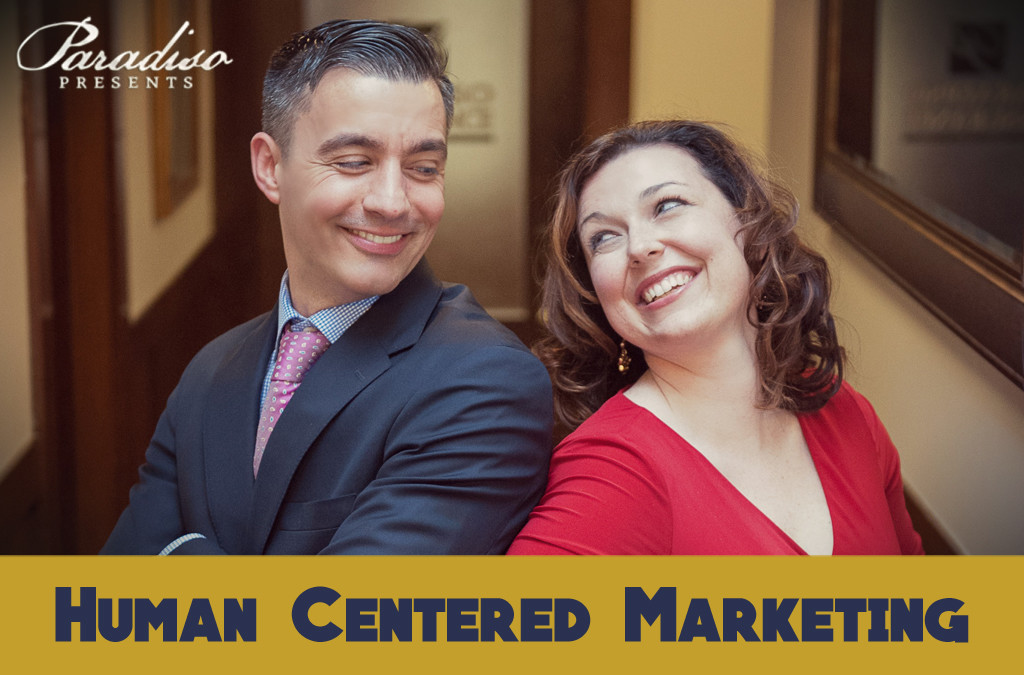As more and more insurance agencies start to believe that they should undergo a digital transformation, we will see more money pouring into digital technologies. The aim is to somehow get likeminded with our insurance buyers and keep our agency in front of our clients. More and more insurance agencies are at risk of becoming automated, and the more you automate, the less humanized your customer experience becomes. The key is achieving the right balance.
Yes, it’s a scary thing for most agency owners, because when we start to talk about digital technology. Most agents aren’t quite sure where to start to find the right company with the right technology for their agency. Then, after they do find the right digital marketing system, they have to worry about how to avoid over-automation and becoming less humanized.
In the Digital Age
Many insurance buyers are faced with high stake decisions. Recently, Google had said they are going into the small commercial insurance space, and that shows us that the buyer is ready to be educated and purchase from the internet. In today’s very fast moving world where people are willing to pay more based on convenience, not all decisions are as complex. But, for some, making decisions on a $10k-$25k purchase can still feel like a million dollar decision.. But, as Flo and the Lizard continue to convince the consumer that insurance is a commodity, the mindset of people are changing. As they continue to spend billions of dollars reinforcing that message, people will continue to believe it.
One thing we can all be assured of is this – if an insurance purchase decision, regardless of the dollar amount, feels like a million dollar decision, it will NOT be made with one click from a desktop, laptop, iPad, smartphone, or tablet. Such a decision is filled with human fears and emotions, because the average American has a lot to lose. In the ever evolving hyper-digital world economy, it is easy to get lulled into the belief that every decision becomes a digital one, with no human interactions required. That is simply not true; humanity plays a huge role in the insurance buying process.
Human Interaction Absolutely Matters Today
What people care about most in the new digital economy is interaction in a high-tech world. Insurance agencies must find balance in offering high touch interactions in both digital and person-to-person formats.. Let me elaborate a tad bit on this point:
Marketers in today’s modern world must take care to not be out of balance with digital marketing automation. Balance is key. Focusing entirely on automating processes could be the death of your insurance agency’s digital marketing strategy, but on the other hand, not having a digital presence could have the same results. Having an entire focus on automation isn’t the best option, and instead we must understand how to use digital technologies to enhance human interactions. Look at the digital world to aide your human interaction, because it also helps with the customer’s experience.
Without a human-centered marketing approach we’re simply automating a really bad process. And, unintentionally, we would be automating the very things our customers and/or prospects dislike, which will cause you to lose them.
The Human-Centered Approach To Marketing
For insurance agencies who have a sales and marketing-minded approach, I would ask you to look at these steps to help your agency stay human-focused with the aide of technology.
- Get to Know and Understand your Prospects and Clients
For many agencies, getting to know their customers and prospects can be a fragmented experience. This involves the use of CRM, sales automation, ability to track inbound marketing, store and gather data, and much more. What’s missing is a disciplined approach to understanding your clients and prospects qualitatively, so you can connect with them as people, as real human beings.
The modern marketing agency will need to take a disciplined approach to understanding how data and qualitative research can blend together to tell the story of their clients and prospects. Now, you’re probably thinking that I’m off the wall, and have no idea what I’m saying by telling you that you don’t know or understand your clients. Let me give you a quick example.f I asked you what your agency does very well, the answer is almost the same every time – “we give great service.” Ok, now my question back to you is, are you open 24 hours a day, 7 days a week? If the answer is no, then how can we say we give great customer service? Our competition, like the Lizard and Flo, are open 7 days a week and 24 hours a day. Do you and your agency ask how the customer likes to communicate with the agency? If you ask a 25 year old they will say text, and a 40 year old will say email in most cases, while a 65 year old will say by phone. I’m hitting this point because we insurance agency owners need a process through a CRM (digital marketing technology) to ask for this information so that we can continue to provide that “human touch.”
- Persona Development
The”NEW” digital economy is changing the way people work, buy, and operate. We are constantly creating new means of digital and virtual pathways towards getting things done, such as an on-boarding process for every new client, and a renewal system which is automated once the sale is over. Overall, this leads to one-size fits all content and interactions designed for your clients. Lets not forget, once the automated process starts, it doesn’t end there; you still need human touch within your process. Human marketers will need to develop persona-based understanding.
- Creating personas of your clients can help you understand how your existing customers are evolving, and how your agency should be interacting with them. Treating existing customers generically as a “new” purchase may cause you to lose clients. The age of leaving a sleeping bear alone is gone thanks to the social and the digital world.
- Buyer personas are focused on how goals and behaviors influence the insurance purchase decision. The goals and behaviors of people engaged in buying can be very different than when they are existing customers. In today’s complex world, we have to treat a new client much different than renewals, and we must have a process to follow for each.
- The voice of users (clients’ voices in the social world) become increasingly important on how to be more efficient and effective on getting referrals. Interestingly enough, we find our agency’s marketing team out in the social media world listening to what others are saying, and this is what’s helping us build more trust and a better relationship.
- Does your agency have a human-centered marketing/sales process?
Our understanding of clients, prospects, and users is at the agency’s core of human-centered marketing. Strategies related to visual content, communications (such as text), digital or social interactions, and engagement should be about understanding how to help people accomplish their goals, along with helping our clients understand our agency’s brand. If we translate our efforts to use personas to truly understand our customers, we’ll be able to connect with them in a very human way. Our marketing and sales strategies deliver the desired types of human interactions that prospects/customers are looking for. If you’re looking to deliver in ways that clients can see, you will see that this is where your agency’s mobile app can also come in and play a role.
This point does echo my mention above. The difference here is in having a disciplined approach to translating our understanding of clients/prospects. Adopting digital technologies, such as a CRM tool, to help your agency market and sell better should have the aim to enhance the human interactions, along with human fulfillment. This all comes down to the fact that we (insurance agency owners) should be looking at all touchpoints involving marketing, sales, service, and support with this explicit goal. Far too often, it is easy to fall into the trap of not bringing in new technologies to help internal operations and efficiencies, because of cost, and because our office staff doesn’t like change. We have to remember who signs the check; it’s not the owner of the agency, it’s actually the client.
- Human-Centered Marketing vs Commodity Marketing
Without establishing a personal touch and an emotional connection with your prospect or client – a human connection – many agencies will be left to compete on only one thing, and that is price. That Price Club is relegated to the very cold and inhuman place we call The Commodity Club. The Commodity Club is a fancy name for an order taker. I promise you, commodity marketing is today’s marketing dead-end. The human-centered approach to marketing has changed in the past 15 years, and today we consider social media marketing a part of a human-centered marketing strategy. Social media allows us to have and keep a human side to selling and servicing our clients in today’s fast and complex world.
Although we may deal in a highly complex and competitive industry, it does not mean we have to approach such in a cold and inhuman way. Today’s modern prospect seeks to have goals fulfilled and emotions understood, whether they be education, fear, or passion. Be part of a human experience – this is key for your agency to win.






Thank you for this. This is what I preach. Thank you. Bruce